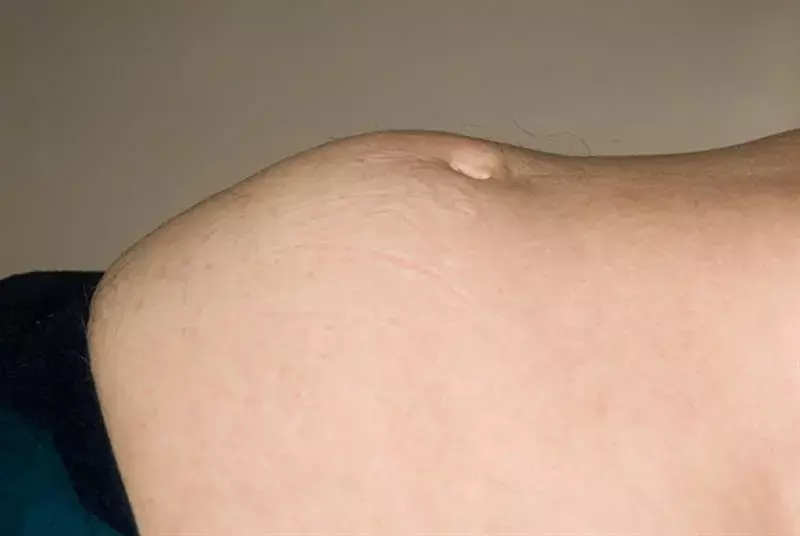- Home
- Medical news & Guidelines
- Anesthesiology
- Cardiology and CTVS
- Critical Care
- Dentistry
- Dermatology
- Diabetes and Endocrinology
- ENT
- Gastroenterology
- Medicine
- Nephrology
- Neurology
- Obstretics-Gynaecology
- Oncology
- Ophthalmology
- Orthopaedics
- Pediatrics-Neonatology
- Psychiatry
- Pulmonology
- Radiology
- Surgery
- Urology
- Laboratory Medicine
- Diet
- Nursing
- Paramedical
- Physiotherapy
- Health news
- Fact Check
- Bone Health Fact Check
- Brain Health Fact Check
- Cancer Related Fact Check
- Child Care Fact Check
- Dental and oral health fact check
- Diabetes and metabolic health fact check
- Diet and Nutrition Fact Check
- Eye and ENT Care Fact Check
- Fitness fact check
- Gut health fact check
- Heart health fact check
- Kidney health fact check
- Medical education fact check
- Men's health fact check
- Respiratory fact check
- Skin and hair care fact check
- Vaccine and Immunization fact check
- Women's health fact check
- AYUSH
- State News
- Andaman and Nicobar Islands
- Andhra Pradesh
- Arunachal Pradesh
- Assam
- Bihar
- Chandigarh
- Chattisgarh
- Dadra and Nagar Haveli
- Daman and Diu
- Delhi
- Goa
- Gujarat
- Haryana
- Himachal Pradesh
- Jammu & Kashmir
- Jharkhand
- Karnataka
- Kerala
- Ladakh
- Lakshadweep
- Madhya Pradesh
- Maharashtra
- Manipur
- Meghalaya
- Mizoram
- Nagaland
- Odisha
- Puducherry
- Punjab
- Rajasthan
- Sikkim
- Tamil Nadu
- Telangana
- Tripura
- Uttar Pradesh
- Uttrakhand
- West Bengal
- Medical Education
- Industry
Acute urinary retention a clinical marker of prostate and other cancers: BMJ

Acute urinary retention is a clinical marker of prostate and other cancers, according to a study published in the BMJ.
A group of researchers from Denmark conducted a nationwide population-based cohort study in all hospitals in Denmark to examine the risk of urogenital, colorectal, and neurological cancers after the first diagnosis of acute urinary retention.
The researchers included a total of 75 983 patients aged 50 years or older with first hospital admission for acute urinary retention during 1995-2017.
The primary measures and outcomes were Absolute risk of urogenital, colorectal, and neurological cancer and excess risk of these cancers among patients with acute urinary retention compared with the general population.
The results of the study are as follows:
- The absolute risk of prostate cancer after the first diagnosis of acute urinary retention was 5.1% (n=3198) at three months, 6.7% (n=4233) at one year, and 8.5% (n=5217) at five years.
- Within three months of follow-up, 218 excess cases of prostate cancer per 1000 person-years were detected.
- An additional 21 excess cases per 1000 person-years were detected during three to less than 12 months of follow-up, but beyond 12 months the excess risk was negligible.
- Within three months of follow-up, the excess risk for urinary tract cancer was 56 per 1000 person-years, for genital cancer in women was 24 per 1000 person-years, for colorectal cancer was 12 per 1000 person-years, and for neurological cancer was 2 per 1000 person-years.
- For most of the studied cancers, the excess risk was confined to within three months of follow-up, but the risk of prostate and urinary tract cancer remained increased during three to less than 12 months of follow-up.
- In women, an excess risk of invasive bladder cancer persisted for several years.
Thus the researchers concluded that acute urinary retention might be a clinical marker for occult urogenital, colorectal, and neurological cancers. Occult cancer should possibly be considered in patients aged 50 years or older presenting with acute urinary retention and no obvious underlying cause.
Reference:
Acute urinary retention and risk of cancer: population-based Danish cohort study by Maria Bisgaard Bengtsen et al published in the BMJ
doi: https://doi.org/10.1136/bmj.n2305
Meghna A Singhania is the founder and Editor-in-Chief at Medical Dialogues. An Economics graduate from Delhi University and a post graduate from London School of Economics and Political Science, her key research interest lies in health economics, and policy making in health and medical sector in the country. She is a member of the Association of Healthcare Journalists. She can be contacted at meghna@medicaldialogues.in. Contact no. 011-43720751
Dr Kamal Kant Kohli-MBBS, DTCD- a chest specialist with more than 30 years of practice and a flair for writing clinical articles, Dr Kamal Kant Kohli joined Medical Dialogues as a Chief Editor of Medical News. Besides writing articles, as an editor, he proofreads and verifies all the medical content published on Medical Dialogues including those coming from journals, studies,medical conferences,guidelines etc. Email: drkohli@medicaldialogues.in. Contact no. 011-43720751


